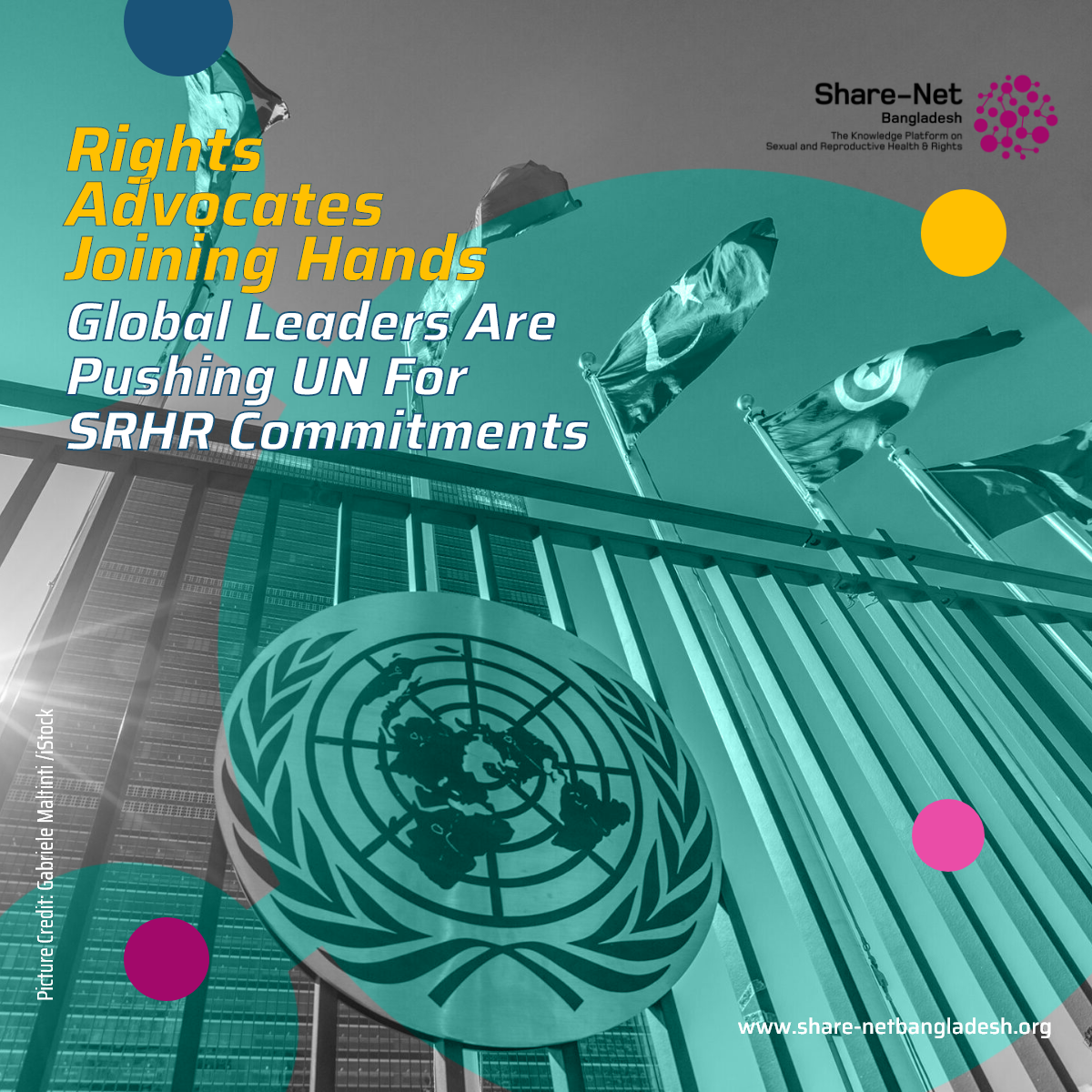Rights Advocates Joining Hands: Global Leaders Are Pushing UN For SRHR Commitments
Despite pushback from far-right governments, advocates secure renewed global focus on sexual and reproductive health and rights.
As global tensions rise over women’s rights, the 69th session of the UN Commission on the Status of Women (CSW69) became a pivotal battleground for sexual and reproductive health and rights (SRHR). At the heart of this movement was the Center for Reproductive Rights (CRR), rallying alongside civil society partners to protect decades of hard-won progress on gender equality.
This year’s CSW took on particular urgency, marking the 30th anniversary of the Beijing Declaration and Platform for Action—a landmark blueprint for advancing women’s rights globally. But instead of a celebratory moment, the conference unfolded under heavy pressure from conservative governments seeking to roll back progressive language around SRHR.
“The backlash is real—but so is our resolve,” said a CRR leader, highlighting the coordinated resistance against far-right attempts to weaken commitments on issues like sexuality education, menstrual health, and adolescent reproductive rights.
In a worrying sign, the U.S., under the Trump administration, had previously joined other conservative governments in challenging references to SRHR, human rights obligations, and even the term ‘gender’ itself in UN language. Despite these setbacks, advocates, including the CRR, secured strong outcomes at CSW69. The newly adopted Political Declaration reaffirmed the Beijing Platform’s agenda while introducing new commitments, including:
-
Clear references to menstrual health, maternal and neonatal care, and universal health coverage.
-
A first-ever explicit mention of adolescent girls in a CSW political declaration.
-
Protection of comprehensive sexuality education (CSE) as a core SRHR component.
These wins are vital in the face of persistent inequalities. According to the UN Secretary-General’s 2024 report:
-
84% of countries have expanded SRHR services since 1995.
-
Skilled birth attendance rose to 86% of global births in 2023.
-
Adolescent birth rates dropped from 64 per 1,000 in 2000 to 41 in 2024.
Yet, progress remains uneven. Maternal mortality has stagnated at 223 deaths per 100,000 live births since 2015, and one in three women still experiences physical or sexual violence globally. In low-resource settings like Bangladesh, access to sanitary pads, menstrual regulation services, and SRHR education remains limited—deepening systemic gender gaps.
As the world reflects on three decades since Beijing, the message is clear: Women and girls cannot wait another 30 years. With champions like the Center for Reproductive Rights at the UN, the fight for bodily autonomy and health equity continues—louder, sharper, and more urgent than ever.
Source: Center for Reproductive Rights
Picture Credit: Gabriele Maltinti / iStock

